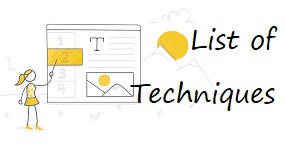Weaponizing the Principles
How we innocently misuse a
magic bullet to shoot ourselves in the foot

Michael Neill
Feb 3 · 8 min read
For more than a decade, I have been sharing a spiritual understanding of life that is more commonly known as either “the 3 Principles” or “the inside-out understanding”. When I talk about it in terms of the inside-out understanding, I’m pointing to the fact that the human experience only unfolds in one direction — from formless to form, inside to out, thought to experience. When I talk about it in terms of principles, I’m pointing to the underlying truth of how life works as first articulated by the Scottish mystic Syd Banks, who said:
“Mind, Consciousness and Thought are the three principles that enable us to acknowledge and respond to existence. Mind is the intelligence of literally all things in this world or any other world… [It’s] the Mind that has the power to guide you through life. Consciousness gives us the ability to realize the existence of life… Consciousness is infinite — there is no end to it. Thought is a gift we were given to have the freedom to walk through life and see what we want to see… Thought is not reality, yet it is through Thought that our realities are created.
Or to put it more simply: We are alive, we are aware, and we are creative.
What little I’ve seen of the truth behind these principles has changed my life immeasurably for the better. I’ve become noticeably happy, which has negatively impacted sales of one of my early books on managing depression but positively impacted every other area of my life. I’ve become less fearful and more free, more creative, productive, and innovative in my business, and have more fun making more of a positive difference in the lives of others than I ever dreamed possible.
And yet, as I lead groups and sit with clients on a nearly daily basis, I can see how for some people the principles have had almost the opposite effect. Instead of an understanding that leads to liberation, they’ve been innocently weaponized and turned into another set of reasons to make our lives our fault and another set of behavioral handcuffs designed to keep us on the straight and narrow path we imagine will one day lead us to heaven even though walking it often feels like hell. The ways this happens are sometimes subtle, but they seem to unfold in a couple of fairly predictable patterns, each one an example of the confusion between a description of how something actually works and a prescription for how we’re supposed to work it…
1) “If I don’t have to, I shouldn’t”
For years, I have attempted to put together a program called Meditation without Meditating. It’s based on an insight I had some years ago into the difference between the state of meditation — sitting in the peace and quiet of pure consciousness — and the act of meditating, which sometimes guides us into that state and other times becomes a stick to beat ourselves with when we think our minds should be quieter than we are and that if only we were more disciplined, they would be. Each time I’ve created the content (three proper attempts so far in the past five years), a well-meaning producer or publisher has renamed it to something less “controversial”, arguing that if I tell people not to meditate that will offend them and more importantly, limit sales of my book or program. The irony is that I’ve never told anyone not to meditate.
— greater peace and presence, insight, aliveness, and spiritual awakening —
are available as or more quickly through understanding principles as they are through observing or attempting to silence the mind.
Here’s how I explained it in a previous article:
When thought looks real, meditation provides a respite from the constant but important things your thinking is telling you about the world. When thought is seen for what it is — the transient creative energy that is continually forming, reforming, and transforming our experience of life moment by moment — our temporary thought-created realities hold less of a hypnotic spell over our attention so we don’t need relief from the feelings of stress, pressure, and insecurity they create inside us.
In the same way as our brain will eventually and automatically tune out the background hum of the fridge or air conditioning or traffic noise, when it sees that the endless loops of our personal thinking don’t contain urgent information that must be attended to for our survival, it automatically begins to tune out the background noise of our own habitual thinking, leaving us in a natural state of meditation more of the time.
Note that at no point do I suggest meditating is bad, wrong, or mustn’t be done. I’m simply pointing to the fact that it isn’t the only way (and may not even be the most reliable way) to get the benefits of that deeper state of mind.
Similarly, I once worked with the CEO of a large pharmaceutical firm who told me that I had ruined his business with my advice to “do nothing”. As I had never spoken to him personally before that day, I asked him what he meant.
“You quoted Syd Banks in one of your radio shows saying “Do nothing”, so I’ve stopped doing anything and my company is beginning to go down the drain.” I pointed out as gently as I could that what Syd actually said was in response to a question about how to see more about who we are and how life works. “Look in that direction,” Syd said, “and do nothing.”
Because this executive had heard the phrase out of context and taken it as a behavioral imperative, his business began to suffer. But what Syd said was simply common sense — if you look in any direction (physically or mentally) and do nothing, you’ll see more without having to do anything to make it happen. It’s just how it works.
2. “If nothing outside of me can make me feel any particular way, I should just accept everything in life exactly the way that it is.”
In The Inside-Out Revolution, I summarized one of the most impactful insights I’ve had in this exploration like this:
At first it surprised me how upsetting this idea was to some people. One man angrily challenged me on it by saying that if I was just experiencing thought in the moment and not my circumstances, then it shouldn’t upset me if he came up to the front of the room and repeatedly kicked me in the shins while I was speaking. My response both confused and disarmed him: “Why would I just stand here and let you kick me in the shins?”
At another event, a woman came up after and took exception to what she heard as my being dismissive of feelings as being no more or less significant than the weather. When she challenged me to tell her how I would handle it if I was caught in a metaphorical rainstorm, I thought for a moment and replied “I’d get wet. But it would be OK because I know I would dry out again, because that’s just how it works.”
The point in both of these examples is that a simple description of how experience is actually created got turned into a prescription for how we’re supposed to behave in the world. In my experience, the question behind the confusion is this:
why would I ever do anything to change my circumstances?
But in my experience, people do what they do because it seems like a good idea at the time. And while sometimes that may be linked to pleasure and pain, more often than not it’s following an inner sense of knowing, desire, and inclination. In other words, the less it looks like changing circumstances is a good way to change our feelings, the more we’re inclined to navigate by our own wisdom regardless of how reasonable or unreasonable that may seem.
So what’s the point?
If your exploration of the principles behind the human experience is taking you towards greater freedom, love, and peace in your life, how cool is that? And if it’s giving you a new set of tools to beat yourself over the head with and a new set of prescriptions to limit your choices in life, know that has nothing to do with the nature of Mind, Consciousness, and Thought, and everything to do with how little we trust the real-time responsive intelligence of the deeper mind to guide us through life with relative ease, grace, and kindness.
You can empower yourself, and set the reality that you want into motion, by taking time to communicate with the subconscious and unconscious levels of your mind.

